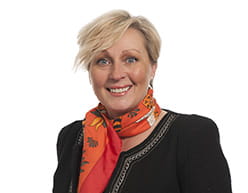In 2013 the government introduced legislation to allow cost sharing vehicles (CSVs) to be established. There was a lot of talk at the time as to whether CSVs would become a staple in RP group structures. Now, four years on, we can assess just how popular and successful they have been.
What is a CSV?
A CSV is a vehicle that is used to provide services to its members. In short, the legislation provides that where a CSV provides services to its members that provision is exempt from VAT. The CSV must operate on a "direct reimbursement of cost" basis, meaning that it cannot charge a profit element on the fee to its members for those services. This means that RPs are able to save the VAT that would otherwise be payable on the services and the profit that they would otherwise pay to a third party contractor. In addition they can benefit from any additional savings from being able to pool resources or streamline services between members in the cost- sharing group.
CSVs are also able to provide services to non-members at a profit (and with VAT payable), giving a further way for the members to generate funds.
Where are we now?
CSVs are no longer a novelty and have been implemented by a number of associations since they were introduced. Examples include Isos, Two Castles and Byker, whose CSV provides gas servicing and complete housing management services; Guinness, Westward and Teign whose CSV provides gas servicing; East Thames and Triathlon whose CSV provides housing management services; and Fortis, Rooftop and Worcester whose CSV provides repairs and maintenance services. There are now over fifteen cost sharing groups in existence, in total providing cost sharing arrangements to in excess of 30 associations up and down the country.
Generally, CSVs have so far been used for higher cost services such as repairs and maintenance and housing management, but there are those that are now looking at the cost sharing model to share a wider range of back office services, including executive and management teams.
Has it been a success?
The key question is of course "are CSVs delivering the cost savings that people hoped they would?".
Paul Fiddaman, chief executive of Isos, says that Isos' CSV has been very successful and "is now delivering a wider range of services and producing a significant increase in the quality of the service that our customers receive and also ensuring a greater level of cost control and predictability". Isos see lots of potential in developing their CSV in the future, both with expanding their services and increasing the number of members in the CSV.
Paul does though flag an important point, namely that a CSV must be founded on a relationship of trust between organisations. Creating a CSV does not automatically mean that costs will be lowered and service quality increased and there will be work in establishing a good working relationship between RPs in order to make the service successful. The potential is clearly there, however, for RPs to deliver some quite substantial savings if they are willing to commit fully to a CSV.
Two Castles was one of the original members of the Isos CSV and has already replicated the arrangements elsewhere establishing another CSV with South Lakes Housing. This further extends Two Castles' determination to deliver value for money services. Cath Purdy, chief executive of South Lakes Housing, the other member the South Lakes CSV, says she sees real benefits coming from the CSV for maintenance in the South Cumbria area, both in terms of value for money and quality of service. This is also a much more efficient use of their in-house contractor and reduces the unit costs of management and maintenance. She feels the partnership will also bring wider benefits including sharing good practice and that other services may be brought into the partnership over time.
Shortly after the establishment of its CSV, Fortis Property Care, Guy Weston, chief executive of Fortis Group, cited increased turnover and greater efficiencies, a spread of overheads across a wider business base, an increase in the number of trades', staff and apprentices within their growing workforce, a sharing of knowledge and expertise through a long term partnership and improved maintenance services to their customers. The CSV took business growth from £15-18m in 18 months and the arrangement contributes £1m of £3m of their planned efficiency savings. The benefits are clear to see.
What next?
Public commentary on CSVs has quietened down, but this does not mean that the rate of CSV establishment has diminished, simply that people are now getting on with it with little or no fuss. We will continue to see CSVs being created for as long as the legislation permits. It is true to say that there is still a learning exercise for some associations in terms of their understanding of the benefits of CSVs and of their knowledge of the structure as an option for service delivery. However, that knowledge continues to increase across the sector.
CSVs are not restricted in the services that they can provide and we have now moved into "second generation" vehicles which have already admitted, or are in the process of admitting, additional members and/ or which have extended the services they offer. It is clear that people are tapping into existing structures in order to access cost efficient services.
It is worth noting that the UK tax exemption is underpinned by EU legislation and it is not clear whether Brexit will have an impact on that. The timeline for any changes however, is unlikely to be immediate, meaning the scope remains for sharing services on a tax efficient basis.
